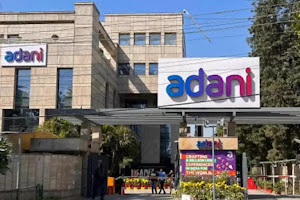
For a novice, Superconducting Circuits are electronic circuits that operate at extremely low temperatures, where certain materials exhibit zero electrical resistance. This property allows for the creation of highly efficient and fast circuits, which are crucial for quantum computing.
Many quantum processors, including those developed by companies like Google and IBM, use superconducting circuit technology.
This milestone by DRDO's young scientists involved submitting a quantum circuit from a cloud-based interface, executing the program on the quantum hardware, and updating the cloud interface with the computed results.
 |
| Image - DRDO |
The project is a collaboration between DYSL-QT, TIFR, and Tata Consultancy Services (TCS), with the qubits designed and fabricated at TIFR.
The scientists at DYSL-QT developed the control and measurement apparatus using a combination of commercial off-the-shelf electronics and custom-programmed development boards. They are also responsible for optimizing various aspects of the system’s performance before it becomes operational.
The qubits used in the quantum processor were designed and fabricated at TIFR. The architecture of the quantum processor is based on a novel ring-resonator design invented at TIFR.
TCS developed the cloud-based interface that allows users to submit quantum circuits, execute programs on the quantum hardware, and receive computed results.
In future plans, the next steps include scaling up the number of qubits and assessing the technology’s scalability and feasibility for commercial application.
Beside this, the scientists want to further optimize the system's performance and scaling up the number of qubits to assess the technology's scalability and feasibiliy for commercial applications.
Few days back, the National Quantum Mission (NQM) of India announced to offer grants to 10 to 15 startups in the next three months to support startups in the field of quantum computing.







%20&%20Prof%20B%20S%20Murty%20(R)%20during%20the%20MoU%20Exchange.jpeg)






 IndianWeb2.com is an independent digital media platform for business, entrepreneurship, science, technology, startups, gadgets and climate change news & reviews.
IndianWeb2.com is an independent digital media platform for business, entrepreneurship, science, technology, startups, gadgets and climate change news & reviews.



